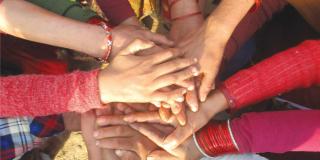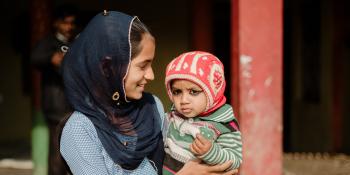
From 2015 to 2018, VSO’s One Community, One Family project studied the social norms that make Nepalese women vulnerable to violence in their own households and communities. We then adapted and developed interventions to transform those norms. A key output of this work is series of manuals collectively known as Sammanit Jeevan (Dignified Life). These include a Gender-Transformative Norms manual, a manual on Economic Empowerment and Income Generating Activities (EE-IGA), and a manual for teen girls and boys.
Based on those manuals, VSO social mobilizers led 28 weeks of trainings on the topics of gender roles and economic empowerment of families, with young married women at the center of the intervention. The objective was to change unequal mind-sets, attitudes, and behaviors of family members, and to guide family members to support and respect each other to live dignified lives.
The positive outcomes of OCOF reflect wider research showing that holistic, family-centred social norms interventions that synchronise work with women and girls in parallel with men and boys tend to be more effective than interventions that do not. As well, the manuals provide a mechanism for economic empowerment of women with support of their families – a condition that is also shown to be critical for long-term behavior change.
We invite you to download, adapt, and implement this knowledge as part of your programme.
About One Community One Family
One Community One Family was implemented jointly by VSO Nepal and Bhimpokhara Youth Club (BYC), a local level organization established 30 years ago, and supported by the What Works consortium and South African Medical Research Council, to reduce risk against women and girls. OCOF targeted a total of 100 households containing young married women and their family members through a family centered model.
Read more

Nepal
We've worked in Nepal since 1964, building healthy communities, strengthening inclusive education systems, and developing community resilience.
